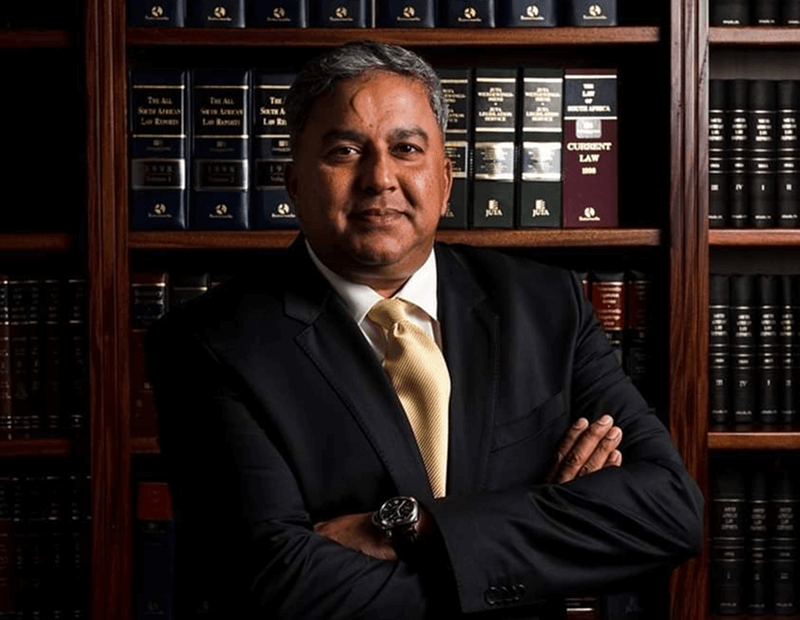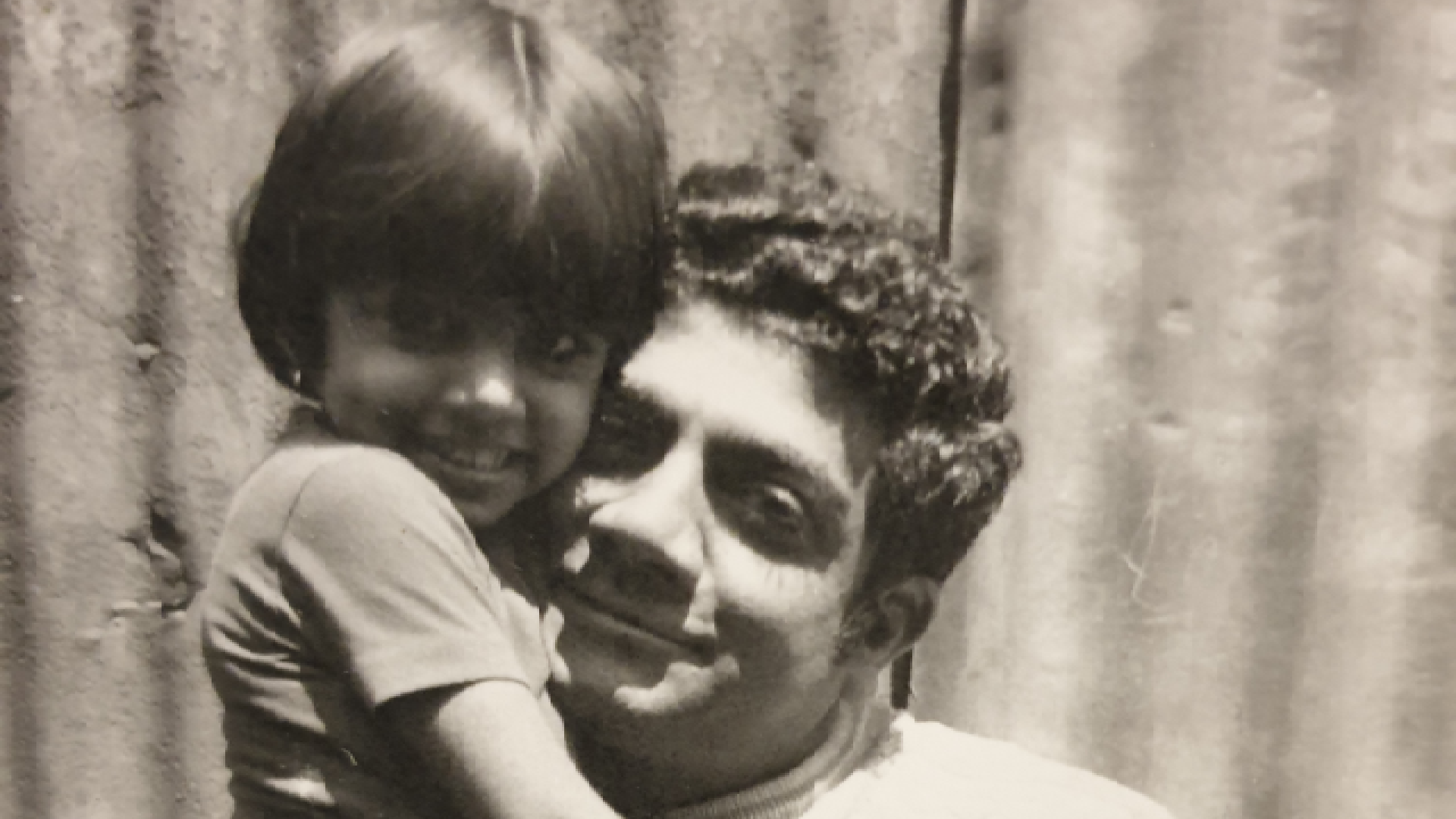Bryan Welker, Stefan Le Roux, and Jessica Rosslee sat down with prolific attorney Sivi Pather on what it takes to build a legacy worth passing on.
There’s a grounded warmth in the way Sivi Pather speaks—a cadence that blends wisdom, humour, and humility in equal measure. Raised in the heart of Durban, his story begins not with privilege but with persistence. From selling clothes as a 12-year-old to buying a fleet of pool tables to fund his law degree, Sivi built his career on a simple belief: that success means lifting others as you rise.
Today, as a founding partner of Pather & Pather Attorneys, he stands at the intersection of legacy and leadership, preparing to hand over the reins of his thriving firm to his son, Kieran. It’s a full-circle story—one of grit, grace, and generational growth.
The Good Business Journal: Where did you grow up, and what shaped your early understanding of the world?
Sivi:
I grew up in central Durban. My dad came from a large family, 16 kids, but lived a humble life. He worked an ordinary job, and we moved wherever his circumstances allowed. What I remember most is his imagination. He never left South Africa, yet he could tell you about places overseas as if he had just been there. He made us dream big. He witnessed how I worked and the hours I put in. But just before he passed, he told me, “This isn’t worth it. You’re missing your kids growing up.” That stuck with me.
GBJ: Did you take his advice?
Sivi:
I tried, but we were in a cycle of growth. The firm was taking off, and opportunities were everywhere. I felt responsible—not just for my family, but for the people working with me. Like John F. Kennedy said, a rising tide must lift all ships.
When you employ people who come from where you came from, and you can help them build their own families, that’s hard to walk away from.
GBJ: When did you decide to study law?
Sivi:
My sister started studying law, and it caught my interest. I’d always been opinionated—the debating team at school probably helped with that. I thought I’d be a litigator, but life had other plans. Next year will mark thirty years of practice, and I’ve probably stood before a judge only a handful of times. I became more of a strategist. I listen to people’s problems, piece together the puzzle, and find a way forward. My young litigators joke that they no longer bring me cases because I settle everything.
GBJ: You’ve become known for mediation and resolution. Why is that important to you?
Sivi:
Because litigation costs more than money, it costs relationships. When you hand your fate to a judge, you’re gambling on how someone else interprets your story. I prefer control. I like to say we sell security.
Clients should leave my office feeling lighter, knowing their problem is in good hands.
GBJ: You worked your way through law school. How did you make that happen?
Sivi:
That’s a story I love telling. Back then, my sister’s boyfriend, who later became my brother‑in‑law, quietly stood surety for a R4,000 student loan so I could enrol. But when I went to pay my fees, I hesitated—I knew I’d never be able to repay that kind of debt. So, I went to the cafeteria to sit and think. That’s when I noticed a man collecting change and cleaning pool tables. You see, I only had to pay my fees at the end of the year, after exams. In fact, it was the only way I could get my marks.
So, with a student loan heavy in my pocket, I approached the man and asked if I could purchase a table. Instead of paying my school fees and getting into serious debt, I decided to take a serious chance. I used the money to buy a secondhand pool table in the student hall, table 10, the one no one wanted, because it sat in the corner where people ate lunch. This meant I got the table at a cheaper price because, well, it had never made that much money in the past anyway.
But the next time you went to those tables, guess which one was the busiest? I rallied all my student friends to play on that table, table number 10.
As that table started earning, I learned the owner was a gambler who loved horse racing. I waited until race day and offered to buy his best table, table one, at a discount when he needed quick cash.
Bit by bit, I reinvested the profits, buying the next table and the next. Within ten weeks, I owned all ten tables in the student hall. Those tables paid my tuition, supported my sister, and helped five of my friends finish their degrees. Later, when I started my practice, a friend down on his luck took over the business.
GBJ: You often speak about loyalty. Where does that come from?
Sivi:
From hardship.
People weren’t always kind to us when I was growing up, but some of the very people who mistreated us later asked me to give their children work—and I did. Loyalty is the one currency that never devalues. When my brother-in-law died, I told his employees at the funeral that without him standing surety for my student loan, I wouldn’t be who I am. It was the first time my sister heard that story because he kept that secret for 20 years.
GBJ: After three decades in law, what qualities do you believe make a great attorney?
Sivi:
Humility, empathy, and consistency. You need to make clients feel seen and safe—that’s what people pay for.
We endeavour to make an indelible impression on our clients after every interaction. Every client, big or small, must leave every meeting with us saying, “Wow.”
GBJ: You’ve mentioned that you’re handing the business over to your son. How did you know it was time?
Sivi:
I had a medical emergency last year that nearly claimed my life. It was a wake-up call. I brought in advisers and divided the firm, giving my partners half. I realised I could achieve everything I needed with less. Around the same time, my son, Kiran, came into the practice. Watching him learn, struggle, and earn respect has been beautiful. Handing over isn’t about stepping back—it’s about mentoring. Too many people leave legacies written on paper rather than in people.
GBJ: Was it difficult to bring your son into the business?
Sivi:
At first, yes. He worked elsewhere, but it was tough; people treated him differently because of who I was. Eventually, I said: Come home, and I’ll teach you myself. He works hard, he’s humble, and he insists on paying his own way now. He’s very different from me—calmer, more deliberate—but he’s got the same heart.
GBJ: You speak a lot about humility. Where does that ethos come from?
Sivi:
From watching people with everything and still feeling empty. I’ve represented billionaires who can buy airplanes to solve tax problems but can’t find happiness. God has been kind to me, and I think the least I can do is be kind to others. My kids learned that early. My son won’t eat until everyone else has eaten.
GBJ: You’ve lived through South Africa’s toughest years and built a thriving firm. What do you see as the unique strength of South African businesspeople?
Sivi:
Resilience. We know the lay of the land—how to adapt, how to work with people, how to keep things moving despite the odds. We understand partnership and patience. That’s our competitive edge.
GBJ: Looking back, do you have any regrets?
Sivi:
Only one; not buying more property when I was younger! That, and playing the stock market in 2008. I lost everything, but it was the best thing that could have happened. It taught me to rebuild, slowly and simply. When you stop chasing, life starts giving.
GBJ: How did you bounce back from losing everything in the crash?
Sivi:
After the 2008 crash, I lost nearly everything. I’d been trading on the stock market, playing something called CFDs—cash per difference—where you put down 10% and the bank puts up the rest. When the market turns, you lose your pants. Overnight, I went from driving Range Rovers and S‑Classes to buying a Toyota Corolla, and that was humbling.
My own partners avoided showing off new cars or homes because they didn’t want to make me feel worse. But looking back, it was the best thing that could have happened to me. I learned that when you stop chasing, things start coming back to you.
I just kept working, quietly, one case at a time. It wasn’t about wealth anymore; it was about getting the basics right and trusting that, with God’s grace, life would settle itself again. And it did.
GBJ: You’re known to say that work-life balance is a myth. What do you mean by that?
Sivi:
It is. You can’t be an elite businessman, husband, and father all at the same time. Something always gives. I worked hard, and my wife raised the kids. But they learned by watching—my discipline, my work ethic, the respect people had for me. That’s education, and I now understand that it was invaluable for my kids to see and learn that from me. In December, we shut down; no laptops, no roaming, just family. That’s how we balance it.
GBJ: And finally, what’s the best advice you give young professionals entering the world today?
Sivi:
Take the stairs. Everyone wants to take the lift to the top, but it’s the steps—the scars and lessons—that make you someone worth listening to. Work hard. Look after your parents. Teach your kids humility. The rest will follow.
From the streets of Durban to one of South Africa’s leading law firms, Sivi Pather’s story is a masterclass in perseverance and grace. He built a business that changed lives—and now, he’s ensuring that legacy endures through the next generation. For him, success has never been about the cars or the titles. It’s about loyalty, humility, and leaving people better than you found them.
Every week, The GBJ editorial team sits down with some of South Africa’s best. With a tenacity and spirit that can create success out of nothing more than a glimmer of hope, we believe South African businesses deserve a platform to tell their stories.
Born from WDR Aspen, The GBJ wants to ask you: how are you telling your story? Reach out and let us help you with your voice.









